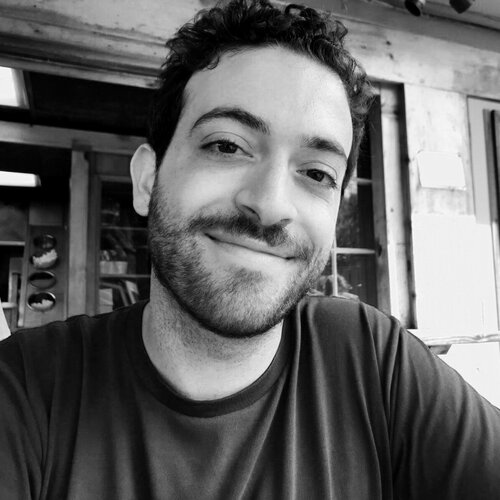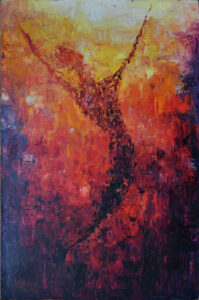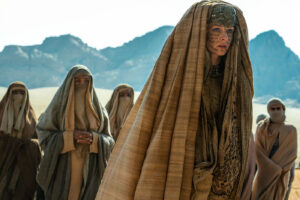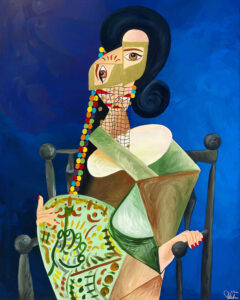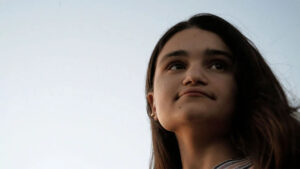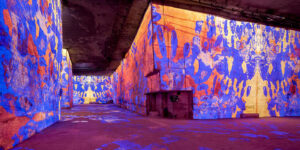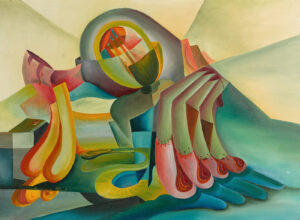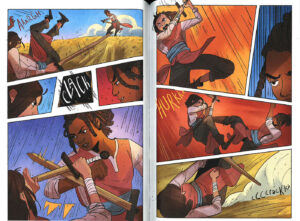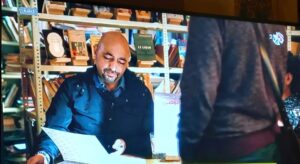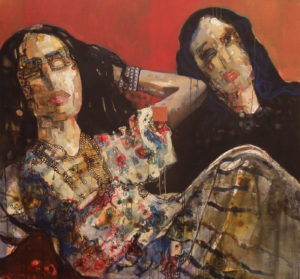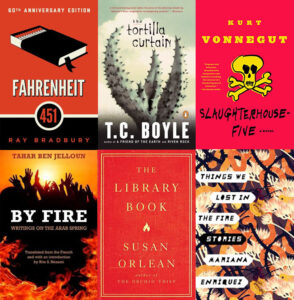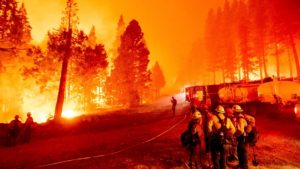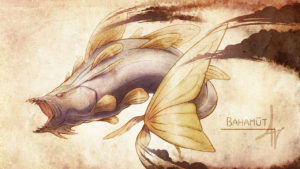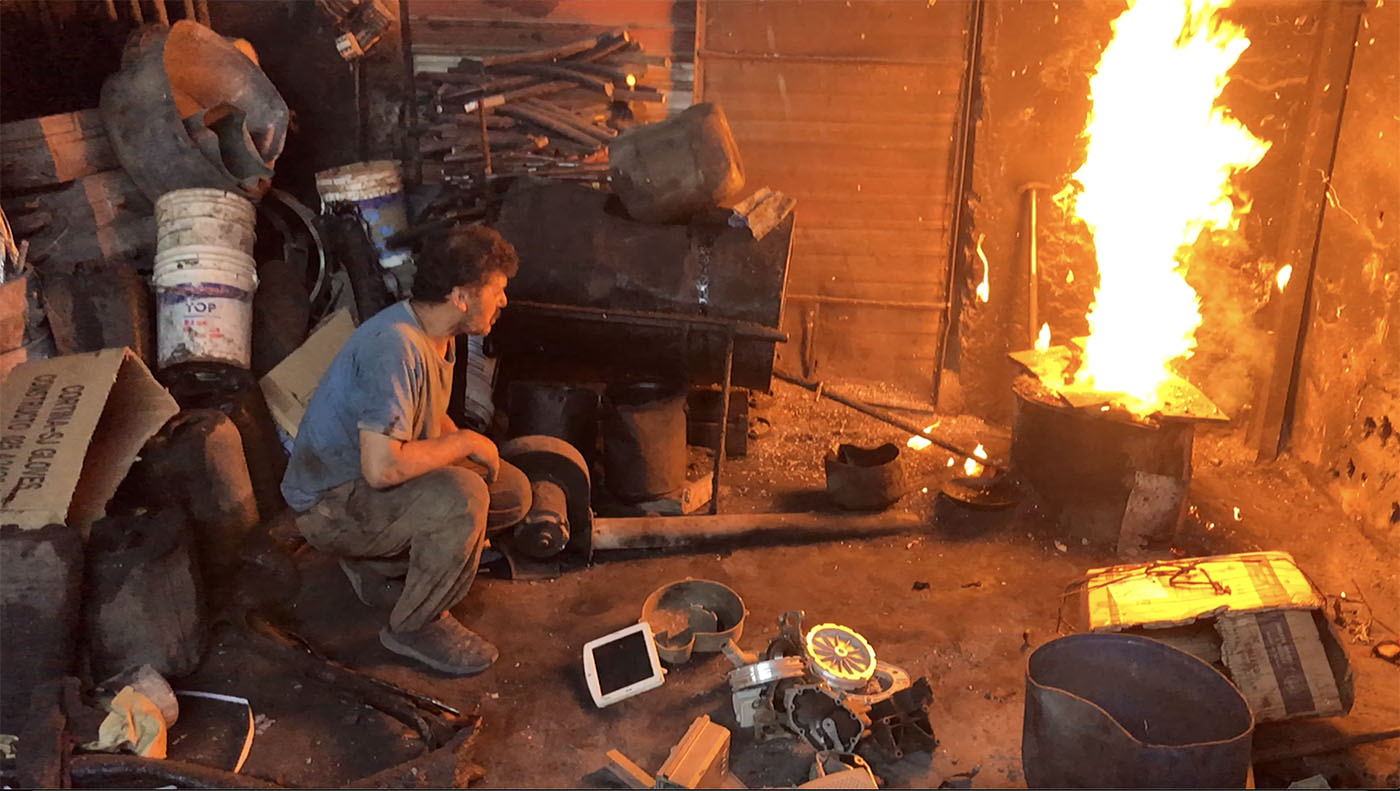
Munir Atalla recently directed the short documentary you are about to see. Wolf’s Milk has enjoyed an appreciative audience on the world festival circuit, and was awarded “Best Directing” at a festival focused on disability. It follows Abdullah, a deaf blacksmith in Amman, Jordan, as he navigates the care and stigma associated with disability in his community.
Munir Atalla
Wolf’s Milk follows Abdullah, a deaf blacksmith who works in a gritty, industrial area of Amman called Wahdat, formerly a Palestinian refugee camp. I met him through two local artists, Lamia Fakhoury and my mother, Reem Mouasher, who came to know Abdullah as they sought to cast some of the first hollow bronze sculptures in the country.
The foundry where Abdullah works is surrounded by noisy workshops and junkyards, “the bowels of industry,” I thought to myself, walking through there for the first time. Abdullah’s craft is casting metal into makeshift parts for cars and industrial machines using a traditional Syrian method called sand casting. At first, it struck me as a terribly dangerous and messy process. Abdullah is perpetually covered in soot, he works in a small room with black walls housing a home-made furnace — essentially a steel barrel fueled by a steady drip of burnt car oil. He pours molten metal into casts made of compacted sand, sometimes coaxing it from the edges with his bare fingers. After my first visit, I blew my nose and found that what came out was the color of charcoal. Still, I was drawn to the tenderness of Abdullah’s spirit, his toothy grin, and his remarkable story.
As a boy, he would sell chewing gum on the streets — oftentimes, folks with disabilities are relegated to this informal labor to make ends meet in Amman. He was taken in by a blacksmith who ran a foundry with his sons, and Abdullah quickly became one of their most skilled and hardest workers. The patriarch of this family stepped in as a father figure in Abdullah’s life and helped arrange his marriage to his wife, Um Ahmad.
Now, the blacksmith’s son, Mohammad, runs the foundry. Mohammad portrayed himself as Abdullah’s keeper. “Only I understand him,” he told us, proudly. “When he gets into fights with his wife, I go over and arbitrate.” At face value, it seemed true. Despite Mohammad not speaking any form of Jordanian Sign Language (its own distinct language with signs for “mansaf” and “shawerma”), he and Abdullah would communicate about sensitive issues such as the exact temperature of the furnace, the percentage mixes of alloys, and large orders that came in for custom industrial parts. The two men would joke around with each other, and Mohammad told us Abdullah was like a brother to him. If Abdullah was experiencing any difficulty, it was concealed behind an indomitable cheer and restless work ethic.
My perspective shifted when I brought my partner, Shezza, to the foundry. A New York public defender with a sharp eye for relationships, she questioned what the specific arrangement was between Abdullah and his employer. She pointed out that while Abdullah did the grueling, dirty, manual labor, Mohammad was always squeaky clean. Mohammad spoke of Abdullah fondly, but also almost as if he had inherited him along with the foundry. While Abdullah’s station was indeed preferable to a life on the streets, was there a measure of exploitation cohabitating alongside the care in their relationship? Shezza encouraged me to get another perspective on Abdullah’s life by meeting with his wife, Um Ahmad.
One day, after Abdullah closed up shop at the foundry, Lamia and I went home with him. I filmed Wolf’s Milk entirely on a handheld DSLR camera, which allowed us to be minimally intrusive. Abdullah knocked on the door of his own house, alerting Um Ahmad to the presence of a male visitor. She threw on a stylish leopard-print coverall and greeted us warmly. Immediately, we could see that Abdullah’s rapport with her was much more nurturing and sophisticated than how Mohammad had portrayed it to us. She signed with him in a mix of home-sign (invented, spontaneous sign language) and JSL, which she picked up from her days as a seamstress working with deaf colleagues. Um Abdullah interpreted Abdullah’s phrases for us in an entirely new way, giving us a new perspective on his work. She confided in us that she had called the Department of Labor several times to file an anonymous complaint about Mohammad’s practices. Abdullah’s grievances, relayed through his wife, were akin to those of many workers — hours that were too long for not enough money. From Abdullah’s perspective, he toiled away in the foundry each day while Mohammad tended to his other projects — he works on a citizen-led volunteer rescue team called “Decent Folks”. To be fair, in response to a visit from the Department of Labor, Mohammad raised Abdullah’s wage. Later, unprompted, Mohammad told us that he had always known that the complaint was filed by Abdullah’s wife (otherwise I would not be sharing this information publicly).
A seemingly simple story yielded a complex web of relationships. We puzzled for months about how to capture these in the film, and ended up with the product you see here. Our priority was to preserve the delicate balance we had found: Abdullah’s job, his marriage, and his relationship with his employer. Ultimately, I was so grateful to Abdullah, Um Ahmad, and also Mohammad for letting me into their beautiful community.
Witnessing the entire cycle of their work, I realized that what they do extends far beyond making car parts using spent engine oil. Abdullah takes the scrap metal of the city and breathes new life into it using the waste of industry. This seemingly “dirty” practice actually has a hugely green impact on the city — instead of shipping car parts from Germany, Japan, or Korea, Abdullah casts them locally, allowing the literal engines of society to keep moving. No object is beyond repair, no combustible material too hazardous to make use of. Abdullah’s work is resourceful, modest, and profound. When I came to this observation, I was floored and deeply moved. These men toil in a corner of the world rarely considered or seen on camera. At first glance, it might seem like a junkyard, “the bowels of industry.” But in reality, it is not the bowels; it is the womb. One could say that Abdullah’s craft is an extreme form of recycling, but to me, it is more than that; it is alchemy.



